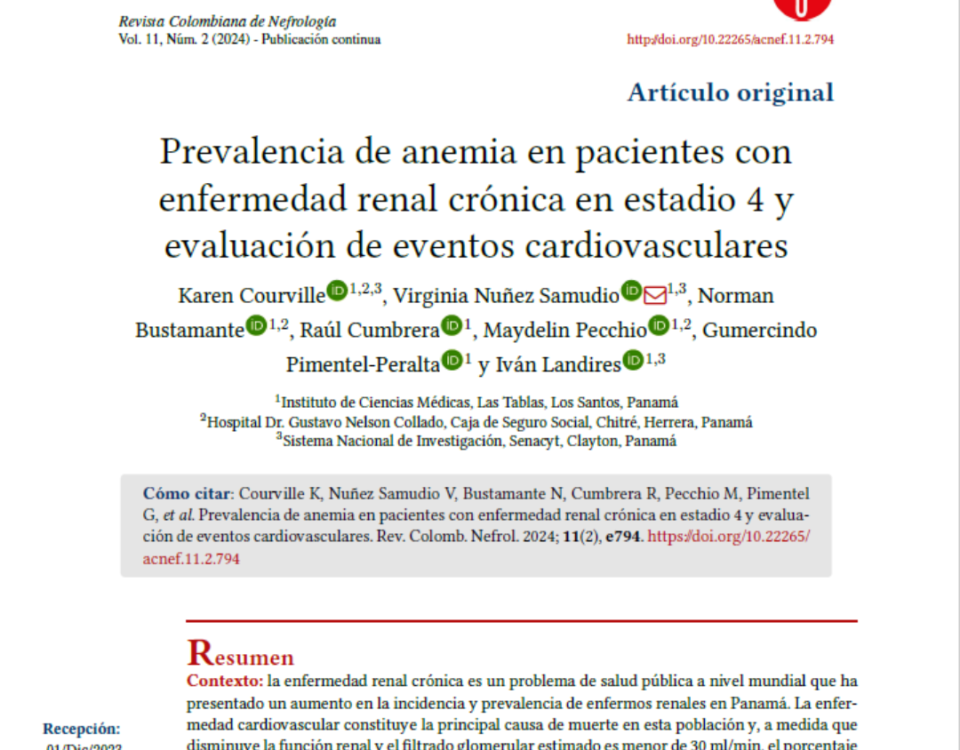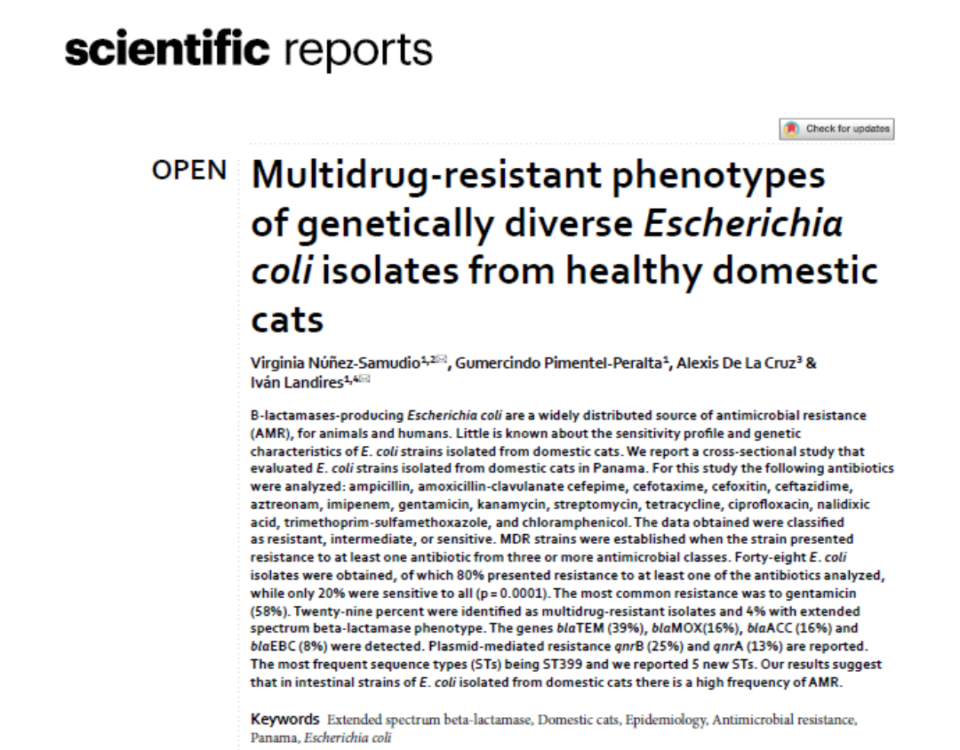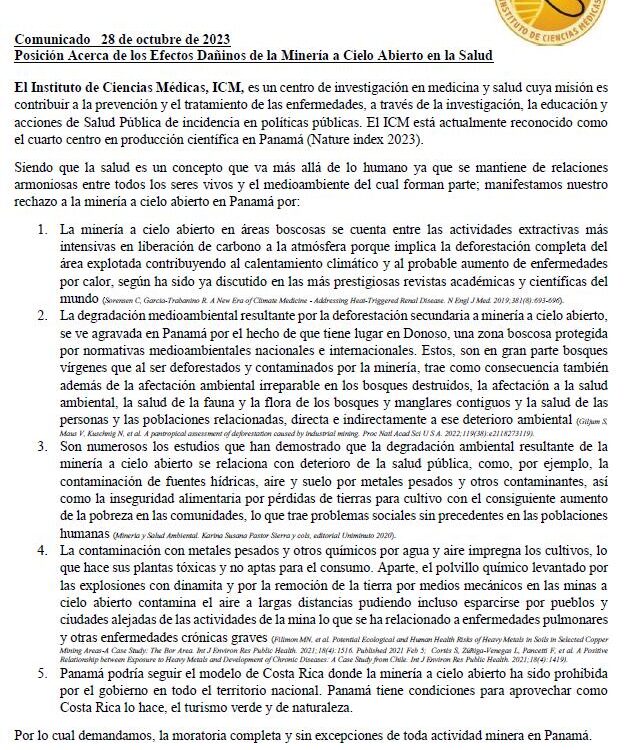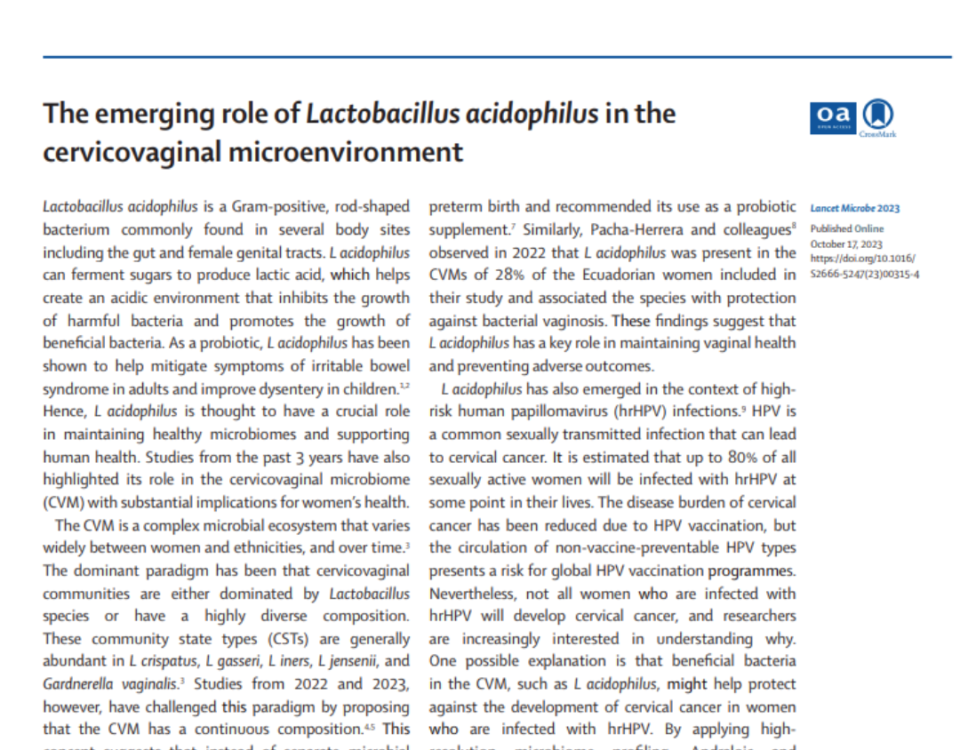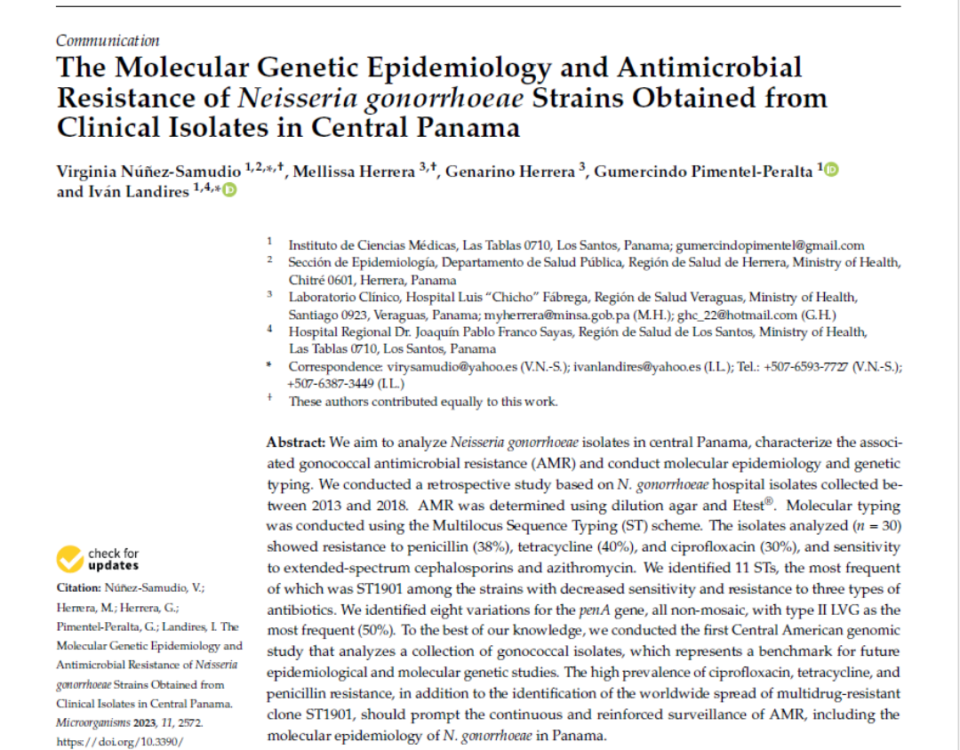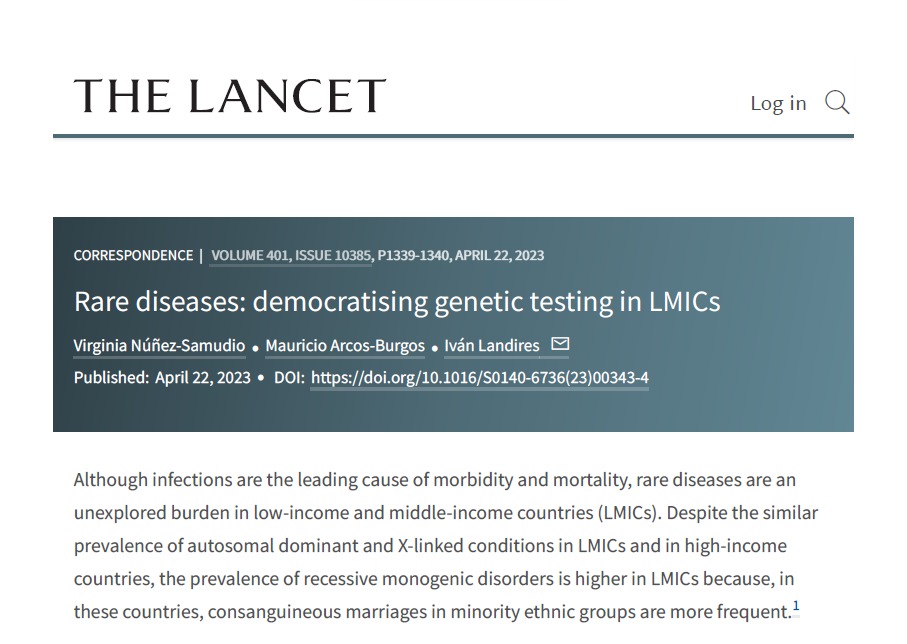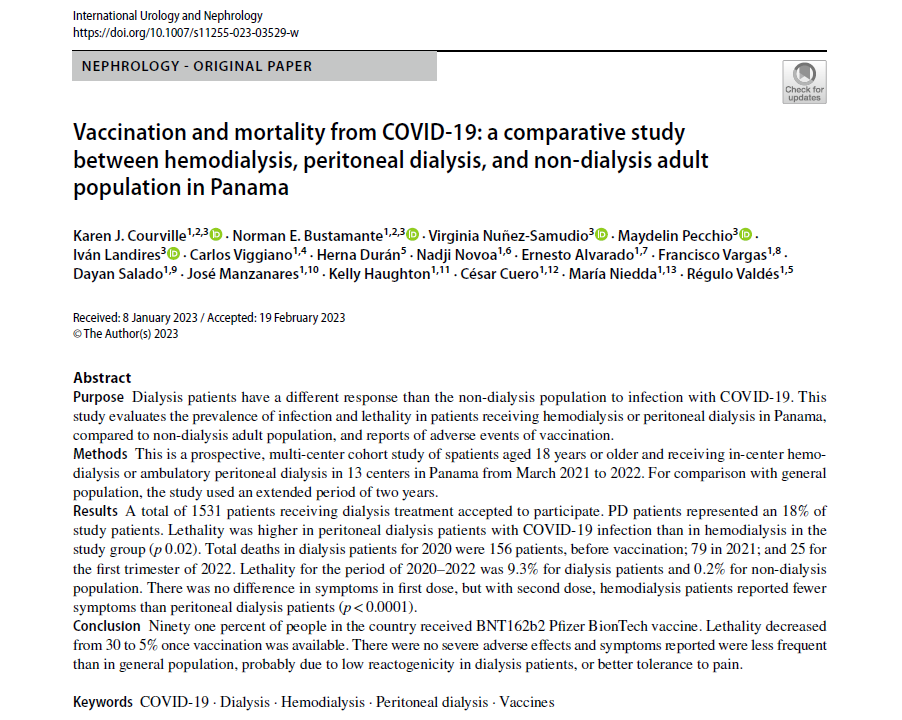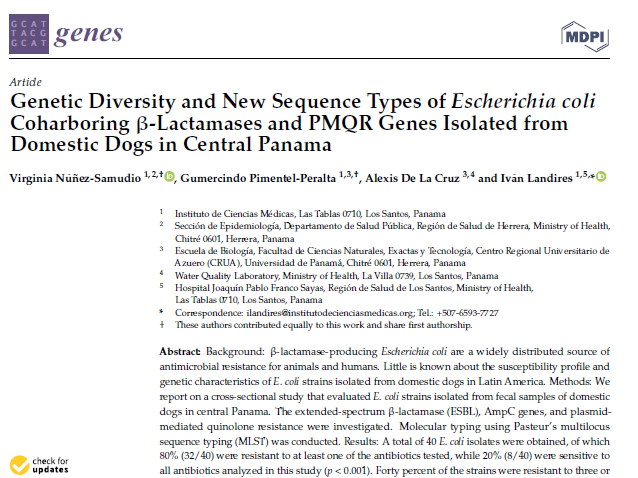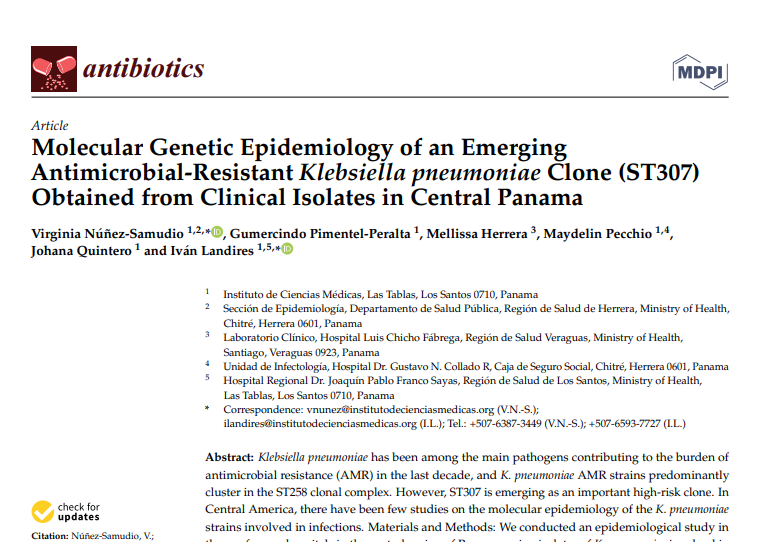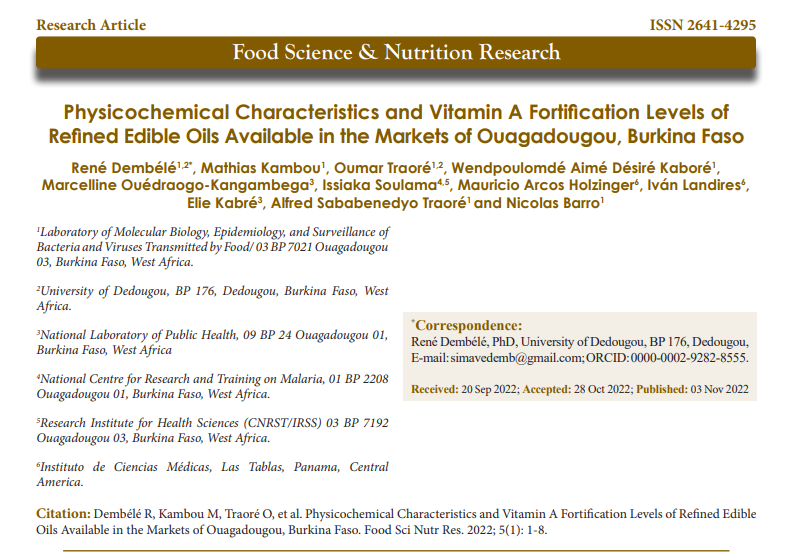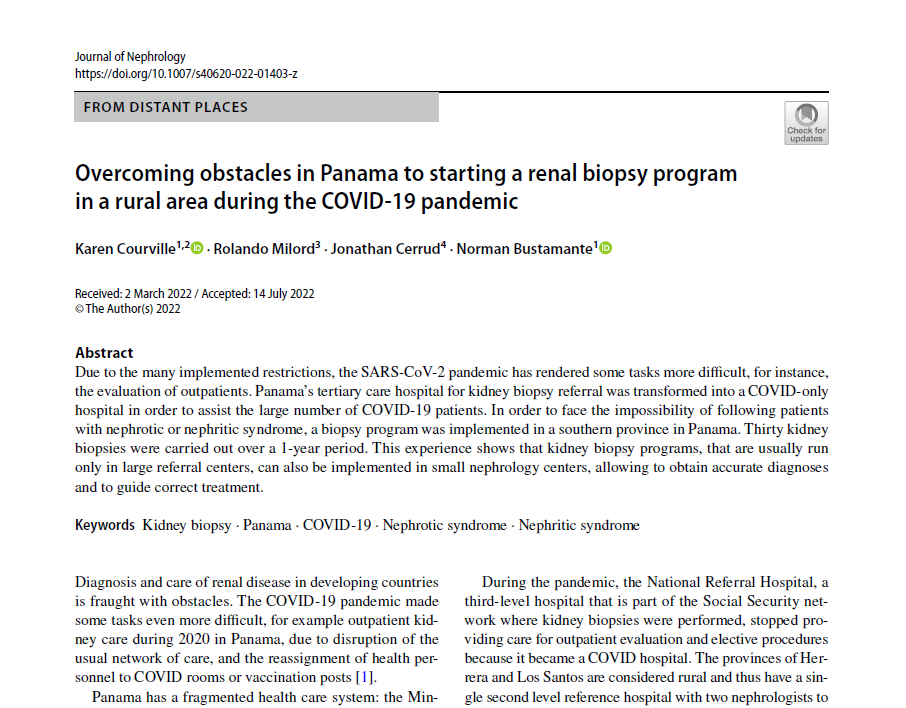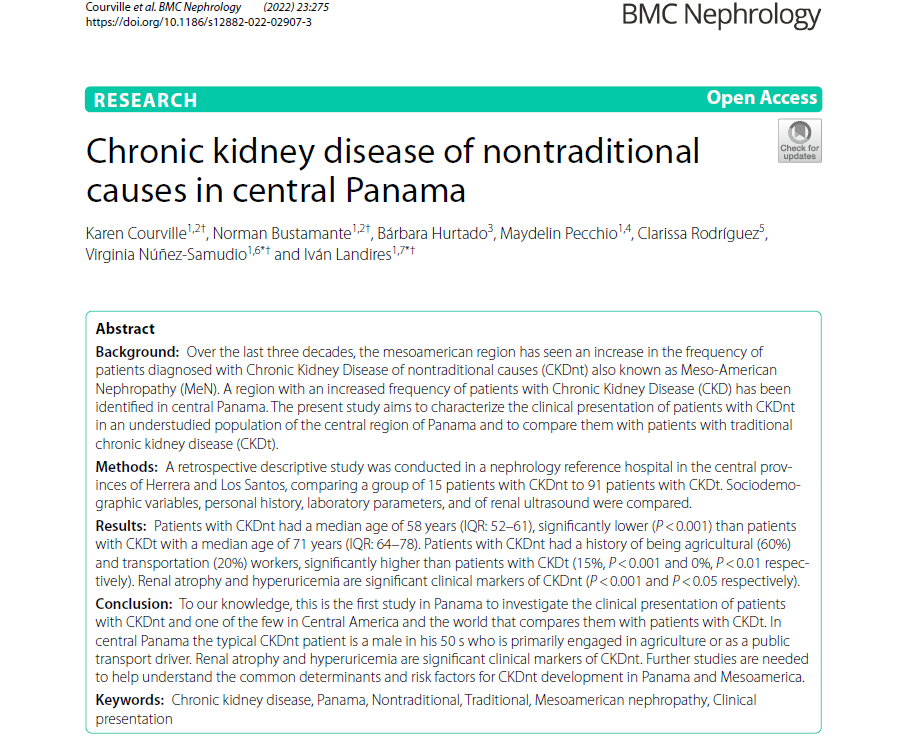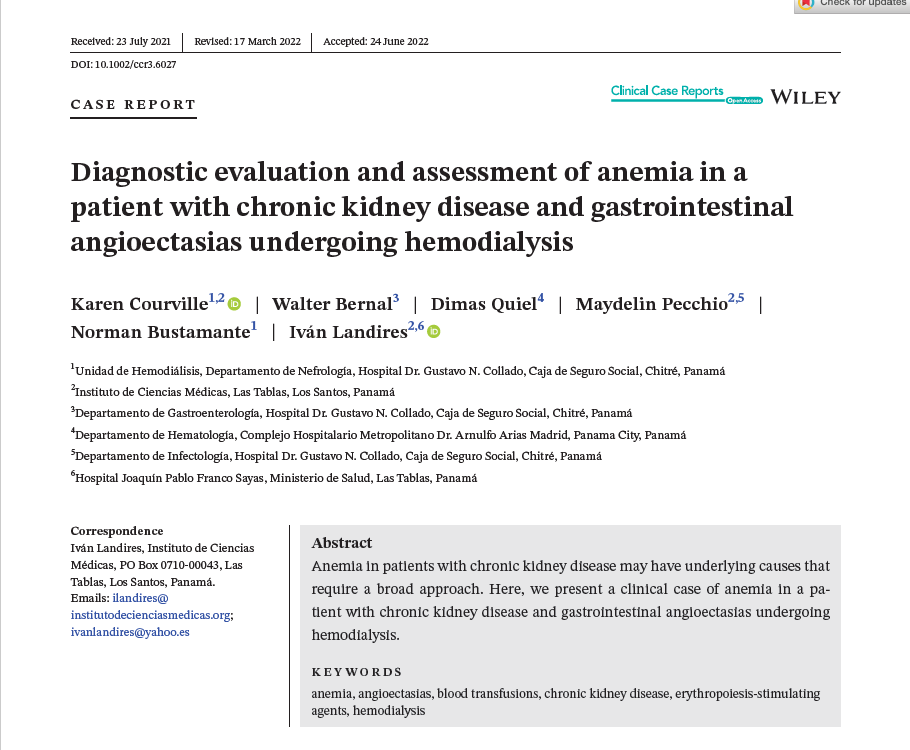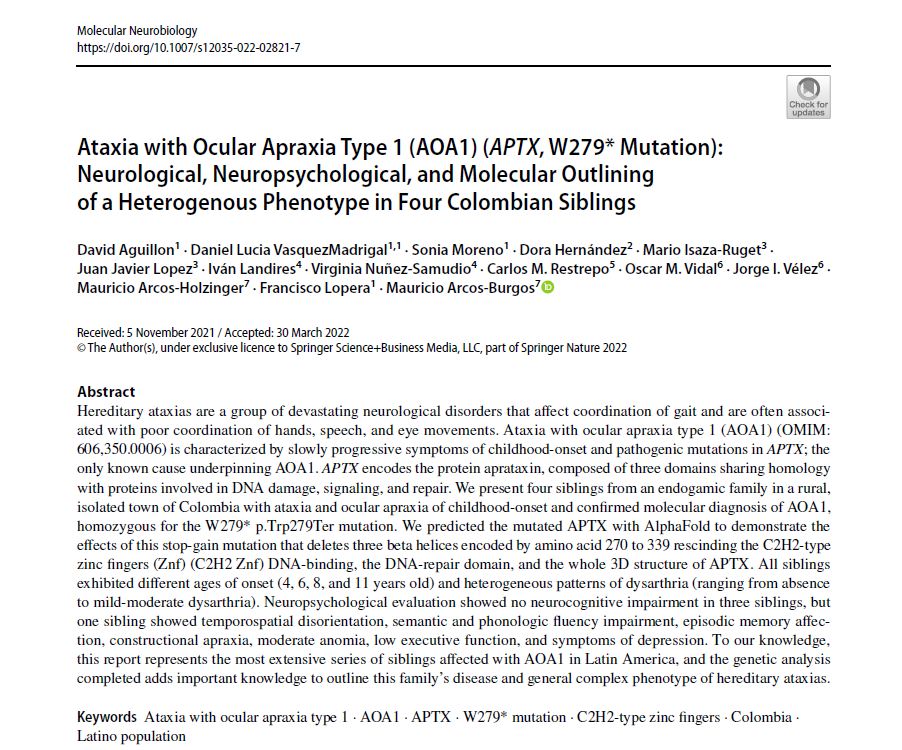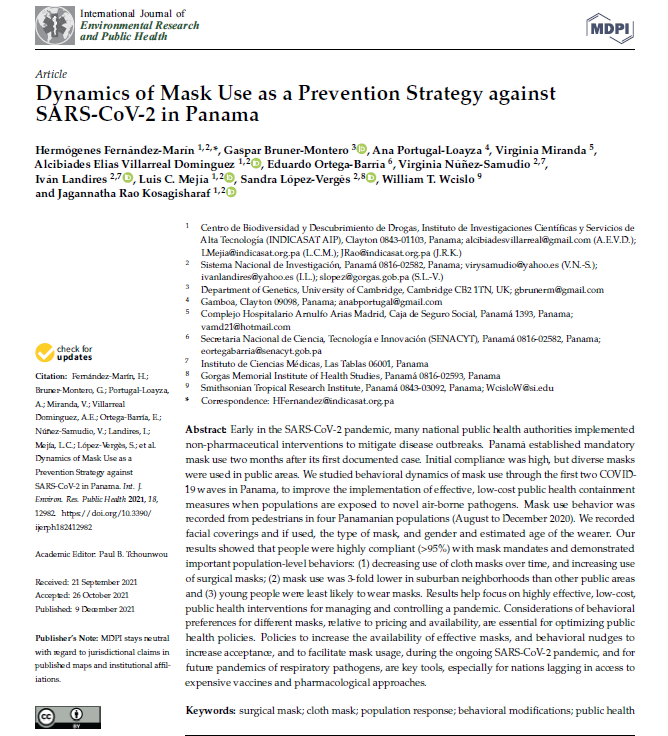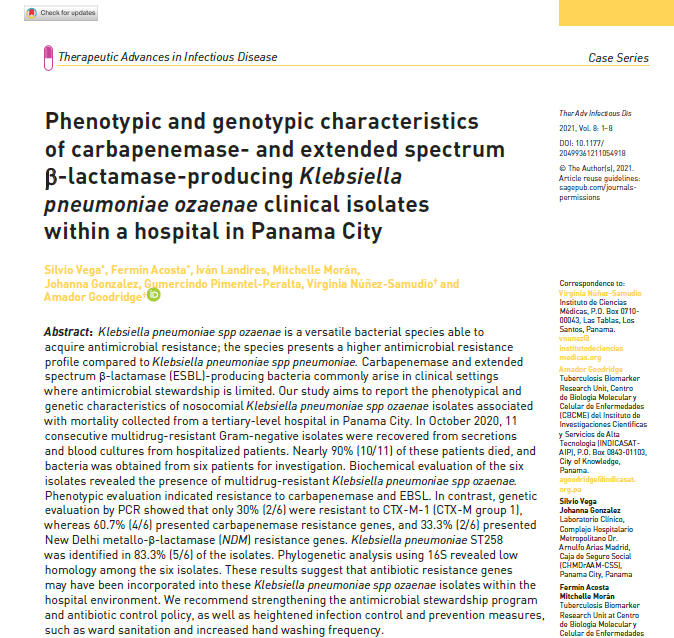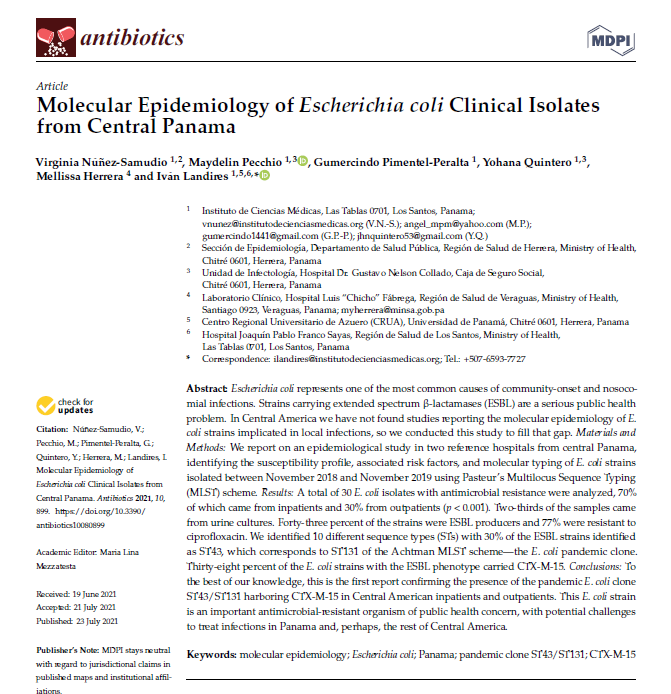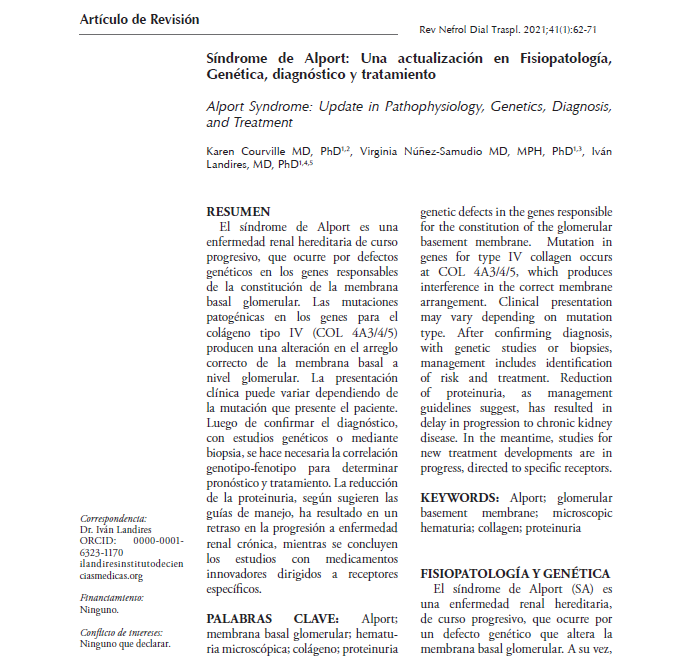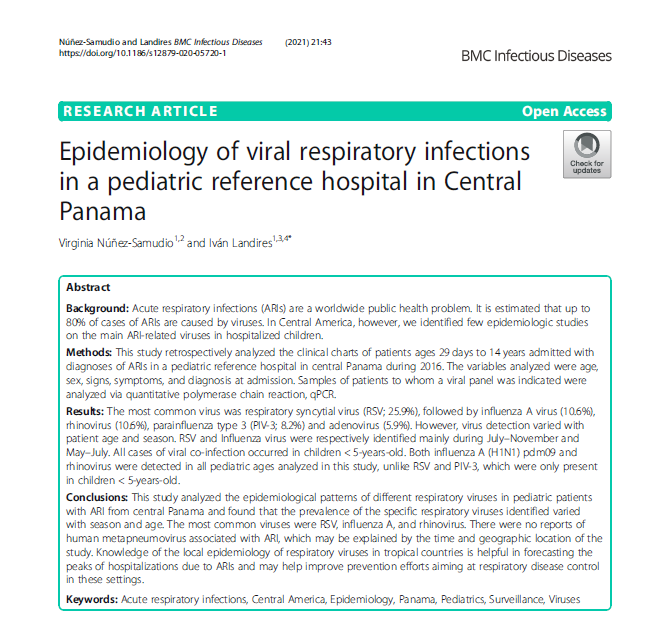Research and Publications
STANDARDIZATION IN PANAMA OF THE MULTILOCUS SEQUENCE TYPING TECHNIQUE IN THE TYPING OF NEISSERIA GONORRHOEAE STRAINS COLLECTED IN 2016.

Abstract
Gonorrhea is a sexually transmitted disease caused by Neisseria gonorrhoeae. It is considered a public health problem due to ineffective vaccines, inadequate treatment and diagnosis, and poor epidemiological surveillance. This microorganism presents a great genetic diversity. Currently, regional epidemiology is not known with certainty due to a lack of information. Therefore, it was necessary to develop reliable information to take control measures. To this end, a study was carried out on bacterial DNA isolates of N. gonorrhoeae. MLST is a technique for typing and characterization of organisms to detect population changes, in this case of N. gonorrhoeae, to control and prevent its spread. It is used to determine the sequence type (ST) and prevalent clones.
In the study, 11 samples were taken from clinical care in the Republic of Panama to which the MLST molecular typing technique was applied. The results obtained in this study made it possible to determine the current genetic diversity of circulating ST in the national territory.
Researchers
Virginia Nuñez-Samudio (1,2) e Ivan Landires (1,2)
1. National Research System, (SNI))
2. Instituto de Ciencias Medicas, Las Tablas, Panama

